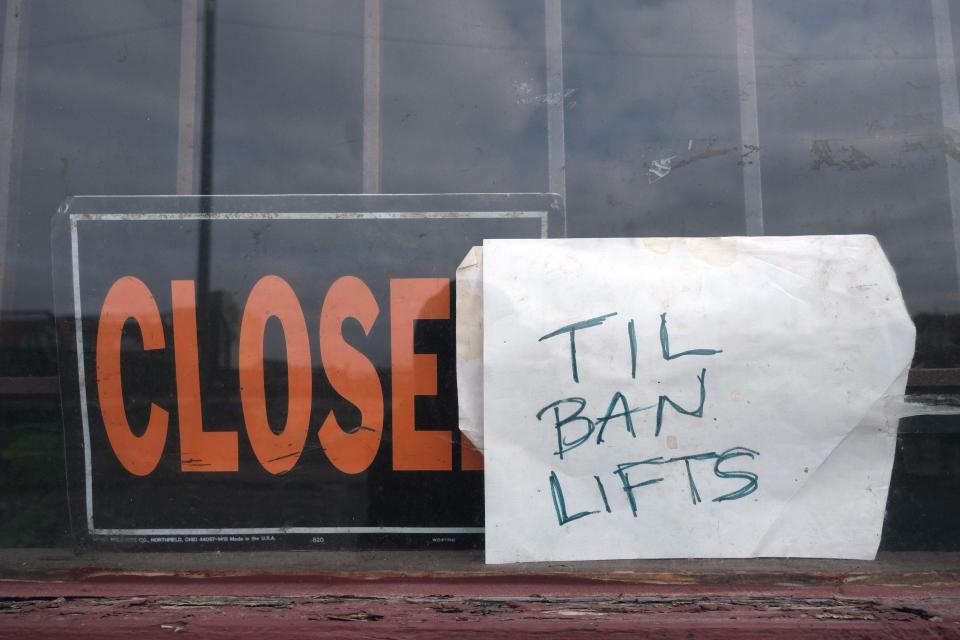Readers sound off on coronavirus, isolation and the stimulus package
The CARES Act, which provides relief for economic losses due to the coronavirus, will give all Americans who meet income requirements $1,200, unless they’re delinquent on child support. Any arrearage will be withheld by the government.
As someone who has practiced family law in Illinois for 40 years, I can tell you that fathers who are late with child support are usually broke, sometimes even homeless. The purpose of the relief legislation is to help those whose income has been reduced or eliminated. Child support is a bill like any other: It must be paid, but people with little or no money have to make difficult decisions to survive.
Furthermore, no matter how dire our national emergency is, or how obvious a father’s hardship is, child support is never adjusted automatically. It requires a court order, which can take months, and cannot even occur now because the courts are closed.
Reducing the relief payment, intended to be a lifeline, to collect child support is unfair, counterproductive, and it’s a policy that must be changed in the next round of relief legislation.
Jeffery M. Leving; Chicago

The COVID-19 crisis and the economic meltdown are the hot topics right now. We are possibly watching, in real time, the demise of a sitting president. President Donald Trump has based the success of his first term primarily on the economy and especially the Dow. Over and over. Now it appears that downfall for Trump might be the Dow’s failing performance.
Edward Creamean Sr.; Pewaukee, Wis.
Gun sales are increasing in response to the COVID-19 emergency. First-time purchasers should consider all of the benefits and costs of gun ownership before buying a gun in a panic.
The COVID-19 crisis has apparently heightened the perceived need for self-defense. While a breakdown in social order may be unlikely, a certain amount of fear in response to uncertainty is understandable. Having a firearm may increase one’s sense of control and safety. But gun ownership has substantial costs. Most gun deaths are suicides. Having a firearm in the home increases the risk of suicide. The same uncertainty and fear driving new gun purchases may also drive up the hopelessness and despair that motivates suicide. This may be exactly the wrong time for many people to bring the deadliest suicide method within arm’s reach.
Another perhaps more obvious cost of gun ownership is unintentional shootings, especially by children. Safe storage practices can mitigate, though not eliminate, this risk. Some jurisdictions mandate safe storage, and these laws have been shown to be effective. Every gun owner should store firearms unloaded and use a safety and storage device.
Fredrick Vars; Homewood, Ala.
I am much more afraid of preordaining a global economic depression than I am of this coronavirus contagion. And I am very afraid of this contagion.
Dwayne Keith; Valrico, Fla.
America’s front-line first responders are hard at work during this coronavirus crisis, and their ranks include health care providers, educators, social service professionals, mental health counselors, transit workers and those addressing food insecurity worries.
No teacher started this school year thinking they would be finishing with online distance learning, no principal thought their building would be called into service as a community food pickup center.
Subway conductors and bus drivers are in a new kind of danger shuttling essential workers to and from work in hazardous conditions in which disinfecting cannot keep up with infection rates.
Social service professionals are keeping track of and helping the elderly, the infirm, the troubled, the hungry and those struggling with addiction.
Mental health providers are hard at work everywhere as stress compounds previous conditions and creates new ones.
Medical professionals, hospital administrators, and support staff are doing everything they can with never enough resources or sleep.
No cop, firefighter, corrections officer or EMT thought infection during a fast spreading pandemic would be added to the list of uncertainties inherent in their jobs.
Police throughout America, like all first responders, are reporting for duty. We cannot work from home. We cannot video conference. We have to show up. The community support we’re getting has made a positive difference. To be honest, it’s also helped that the usual insults from anti-cop activists have faded.
Families are in close quarters. School spring break holidays (not that anyone is going anywhere) will soon be winding down. Economic stresses are increasing. The novelty of distance learning may start to wear off. Families impacted by domestic violence will become powder kegs. With warmer weather and later sunsets, more people will be outside further into the evening. At some point soon, we are told, everyone will have someone close to them who has gotten sick.
Maintaining social distancing in parks, on benches outside buildings, on stoops, outside stores and on corners will inevitably force police to become public health enforcers. There is a possibility of incidents attached to these interactions. Please trust police to do the right thing.
Policing is supposed to be a hard job. Nobody signed up thinking it would be easy. For many, being a copy is a calling. For others service is a family tradition. The diverse men and women in police departments can be trusted to do the job.
Easter, Passover and Ramadan are going to look a lot different this year. As New York's Gov. Andrew Cuomo said, we need to be physically separate but spiritually connected. Together, we can get through anything.
Ed Mullins; president, Sergeants Benevolent Association
New York Police Department, N.Y.
This article originally appeared on USA TODAY: Readers sound off on coronavirus, isolation and the stimulus package

